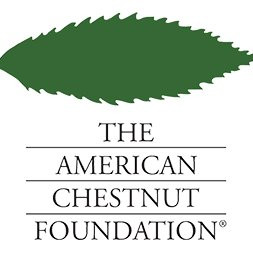Battle Over Chestnuts: Genetic Engineering Prompts American Chestnut Foundation Resignations
Sunday, March 31, 2019
Two board members of the Massachusetts/Rhode Island Chapter of The American Chestnut Foundation (TACF), including the Chapter President, announced their resignations this week from TACF as a protest against the organization's support for genetically engineering (GE) American chestnut trees.
Board President Lois Breault-Melican and Board member Denis Melican said they made the decision to leave due to TACF’s support for “the unregulated planting of GE American chestnut trees throughout eastern US forests.”
According to the Melicans, if deregulated by the USDA, the GE American chestnut would be the first GMO allowed to be planted in the wild with the intent to reproduce itself. And according to the Melicans, there are no long-term studies of the impacts this would have on forests, wildlife, pollinators or human health.
GET THE LATEST BREAKING NEWS HERE -- SIGN UP FOR GOLOCAL FREE DAILY EBLASTIn a phone interview with GoLocalProv, the Melicans spoke to their involvement with TACF, and the history of the American Chestnut tree - - and how a blight in the early 20th century nearly wiped it out, before efforts were made around the country to resurrect and strengthen the number of trees — and how now the future of the species faces fierce debate.
Chestnut Blight — Resurrection — and Future
“In China, [their chestnut] trees co-evolved with the blight, so they were mostly immune,” said Bruce Melican, of the circumstances that led to the blight that occurred in 1903 and was discovered in 1904, when Chinese chestnut trees were brought to America. “The American trees -- because of unregulated trade, they didn't understand the nature of airborne pathogens. Everything is heartbreaking and fascinating at the same time.”
“The American chestnut tree was dying,” said Melican, after efforts to stop the spread of the blight were unsuccessful. “I can tell you, by 1950, they were functionally extinct.”
The Melicans said that a specific backcross breeding method, which was developed in part by Philp Rutter, helped with the return of the American chestnut tree.
Lois Melican, who along with her partner Dennis work in Massachusetts State Parks, spoke to working on breeding orchards and seed production orchards — and the discussion to introduce genetic engineering.
“Most people don’t understand what GE is at all. Someone yesterday [I spoke with] thought it had to do with glyphosate,” said Melican.
Bruce Melican addressed what genetic engineering would entail — as well as their concerns.
“We feel that despite half a century of time [now], it will never be right to fool Mother Nature,” said Melican, who said that TACF wants to insert the wheat gene into the chestnut — and it is up to individual member organizations to decide if they want to embrace the policy. “Every culture has used backcross breeding for ten thousand years. TACF is building this out like this is another tool in the toolbox.”
“That doesn’t mean we have to feel compelled to embrace a technology that’s not in sympathy with Mother Nature,” said Melican.
National, Regional Groups Respond
While the local chapters of TACF have said they are not embracing the technology at this time espoused by the national group, the Melicans raised concern how feasible it will be for some states to embrace GE trees while others do not — for now.
“We are grateful to Lois and Denis Melican for their contributions to The American Chestnut Foundation (TACF). Their dedication was vital to building a widespread, grassroots program in our Massachusetts and Rhode Island Chapter,” said Lisa Thomson, President and CEO of TACF.
“Unfortunately, their personal philosophies do not align with technological advancements that will be vital to restoration of the American chestnut species. TACF is a scientifically-driven conservation non-profit which seeks to integrate all safe solutions which lead to imperiled species restoration including traditional breeding, biological control, and biotechnological methods. For more information, please visit www.acf.org to learn more about our hopeful mission.”
“The MA/RI Chapter of TACF has not been involved with the creation of the transgenic chestnuts, nor do we have any. Our trees are all traditionally created using the backcross method. We are volunteers dedicated to the work of restoring this important, beautiful tree, the American chestnut,” said Yvonne Federowicz and Kathy Desjardin of the MA/RI Chapter of TACF in a statement to GoLocal.
“So [TACF] said you don’t have to do the GE program, but how long before you have New York doing it and Massachusetts not?” said Lois Melican.
“We are unwilling to lift a finger, donate a nickel or spend one minute of our time assisting the development of genetically engineered (GE) trees or using the American chestnut to promote biotechnology in forests as any kind of benefit to the environment,” said the Melicans in their resignation statement. “The GE American chestnut is draining the idealism and integrity from TACF.”
Related Articles
- Getting Your Backyard Trees Ready for Winter Weather
- How To Protect Your Trees From Bugs and Disease
- Getting Your Yard’s Trees Ready For Winter
- Saving RI’s Iconic Chestnut Trees
- Spring Planting Plans for Trees
- Winterize Your Trees Now
- How to Protect Your Trees in Winter Storms
- Landscape Now: 10 Low-Maintenance Trees For Your Yard
- The Urban Gardener: Late-Summer Peach + Pear Trees
- EcoRI’s Carini on Cutting Down Trees for Solar, and Upcoming Interview with Navy on 2018 War Games
- Whitcomb: Taxing Your Enemies; Planting Trees Together; Thanks for No Thanksgiving
- Free Trees for Newporters




